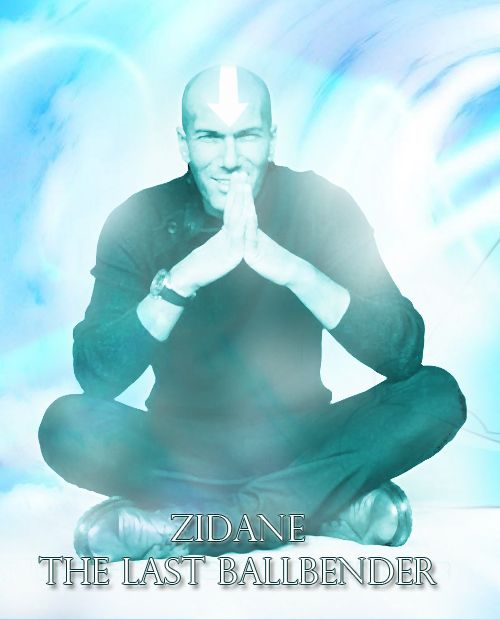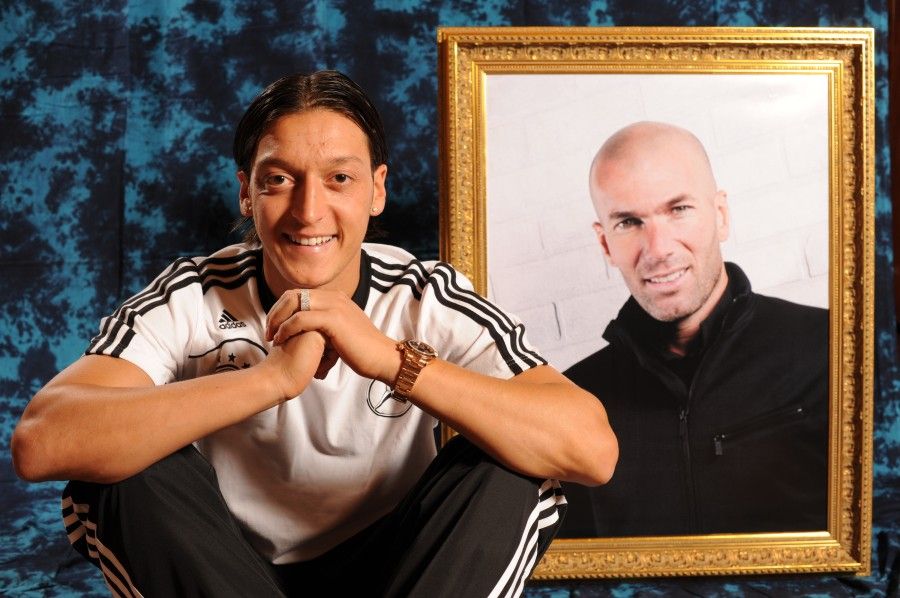
The Last Ball Bender: Zinedine Zidane

Ball-bending
Noun: One of the five elemental bending arts, ball bending is the aero kinetic ability to control a ball which involves manipulation of the ball’s curvature, circumference and velocity.
The year was 2006, and it seemed like the golden era of the last ball bender had come to an end. Materazzi had touched Zidane’s nerve quite enough to make sure that Zidane left the pitch without the prestigious World Cup.
Winding the clock backwards, a son of Algerian immigrant, Zinedine had just learned to play football unknown to the greatness that he was bound to achieve. Starring at local clubs, the 14-year old was discovered at a French Football Federation training camp by AS Cannes recruiter Jean Varraud, and spent the next three years honing his skills in Cannes’ youth division. And although he showed tremendous potential, he had a lot to learn before he was ready to rule Europe.
Making his first professional appearance at the age of seventeen, Zidane had scored a goal on his debut for Cannes. Even at that age, he was always first on the ball. He would always be at the right place at the right time, but what was fascinating about him was his touch – it was so fluid and aerial. It simply wasn’t regular or comparable to any other footballer.
After spending 4 successful years at Cannes, young Zinedine Zidane‘s quest for greatness took him to Girondins de Bordeaux, where he was transferred in the 1992-93 season. During the four years at the club, Zidane had won the 1995 Intertoto Cup and helped Bordeaux finish as runners-up in the 1995-96 UEFA Cup.
Great thoughts, like great deeds, need no trumpet. Yet Zidane had to move.
He was transferred to Juventus in Italy’s prestigious Serie A in 1996. Right upon his arrival, Zinedine helped Juventus secure the 1996 Scudetto and the Intercontinental cup. In the following years, Juventus reached the Champions League finals three times in a row but succumbed to defeats at the hands of Dortmund and Real Madrid.
Zidane was never known for his pace, yet he was always first on the ball. He had skills and technical potential that were just out of the ordinary. When it came to control and especially leading the team, he managed to see and analyze situations quicker than anyone else in the field. He made the difference count. You could often find him gazing at the ball with a desire to win it; you could see the eloquent respect in his eyes.
His record money move to Real Madrid may not have been as productive in terms of trophies won, but in a team where Raul played the role of a local hero-turned-captain, he was the guy who pulled the strings; he would be the example of true footballing perfection. He emerged as the marquee Galactico in the roster. And among all the superstars, he was one of the few players in Madrid’s transfer history who was actually worth that much. He was the quintessential playmaker in the team, and what he did on the pitch would leave all who witnessed in awe. He was a wizard, a magician and his sense of austerity, hard work, humility and honesty were an inspiration to all.

His half volley goal against German side Leverkusen would perhaps be remembered as one of the greatest sporting moments in modern history. It was a work of art, and only a few were lucky enough to witness a goal that would not just change a game, but define the grace and beauty Zizou walks with.
It was the 45th minute of the match when Brazilian left-back Roberto Carlos came in with a cross floating towards the 18-yard line. With almost three to four players closing in him, it seemed like perhaps Zidane had slowed everything down. It was like watching Bruce Lee in slow motion as the Frenchman produced the most exquisite left-footed volley the world had ever seen as the ball flew past Hans-Jorg Butt.
“Yes, of course, that volley was a great moment for me because I was missing that trophy. To score like that in the Champions League, if that happens to you once in your life that is good, and it happened to me that evening in the final of the Champions League.”
—Zinedine Zidane
Zidane never had a posh haircut like David Beckham, nor he was really into the idea of shooting commercials; all he had was his love for football. He might not have won as many trophies as he should have with the Los Blancos; but then again, the true mark of any great player isn’t assessed by the number of trophies he has won, but the mark he leaves on the beautiful game.
His skills weighed the same when he was wearing the national team shirt in the ’98 World Cup, which could be considered as his best-ever performance in any tournament. Amidst the media hoopla tipping France to not do so well, Zizou and Co. battled their way up to the final where they were facing Brazil. The night had started well for the Blues with Zidane scoring the first goal with a scorching header. Soon after, he added another to his tally, with Brazil losing 3-0 with another goal from Emmanuel Petit in the final minutes.
Later that year, Zidane was conferred with the European Player of the Year and World Player of the Year award as well. He would later end up being the second player to have won the prestigious World Footballer of the Year twice after he helped France win the European Championships in 2000.
His magnificence lived through his exceptional capacity to take control of the game, and manipulate it to his every whim. With an impeccable physique and athletic build, he was the heart of his team in the centre of the park. He had the graceful touches and selfless passing qualities which defined a true trequistera. He would in no way run past defenders, but simply glide through them.
Be it Real Madrid or France, Zinedine Zidane would always be remembered as the temperamental genius who showed the world a creative side to the sport of football.
Resetting the clock, we are back in the year 2006. Zinedine had already stated that he would retire after the World Cup tournament. It was the finale, and Zidane had already put France ahead in Berlin with one of the most cheekiest penalties you will ever see. Materazzi would go on to score an equalizer just after twenty minutes.
The stage was set. Les Blues were looking confident and so were their fans.
Marco Materazzi, nicknamed the Matrix, had touched the ball-bender’s nerve.
In the middle of the shirt-tugging and name-calling, Zinedine shunted his head into Marco’s chest and was thrown out of the game by Argentinean referee Horacio Marcelo Elizondo. Italy would go on to win the match 5-3 on penalties to win the Cup for the fourth time.
Zidane maintained he was goaded by Materazzi, who had made a slur about Zidane’s sister, provoking Zidane’s action.”You hear those things once and you try to walk away,” he said. “That’s what I wanted to do because I am retiring. You hear it a second time and then a third time…”
He certainly might have been a bit temperamental, but if Zizou had kept his temper, he would not be the genius that he is.
It was his swan song, and Zinedine had retired from professional football. The Last-Bender wouldn’t bend the ball anymore.
But does it end here?
The divine spiritual entity of the world suggests that the ball-bender would continuously be reborn and reincarnate in human form.
So is he here yet?
